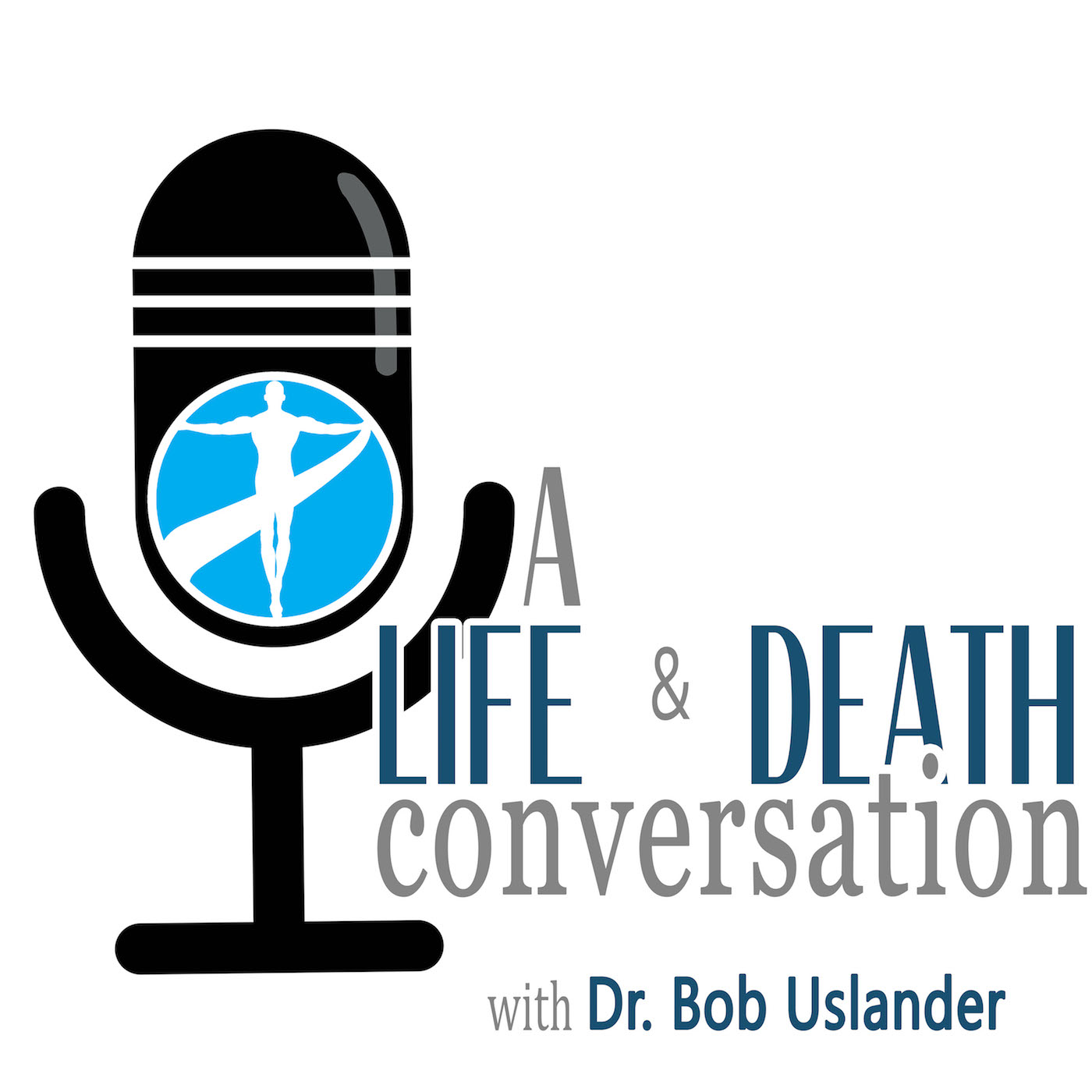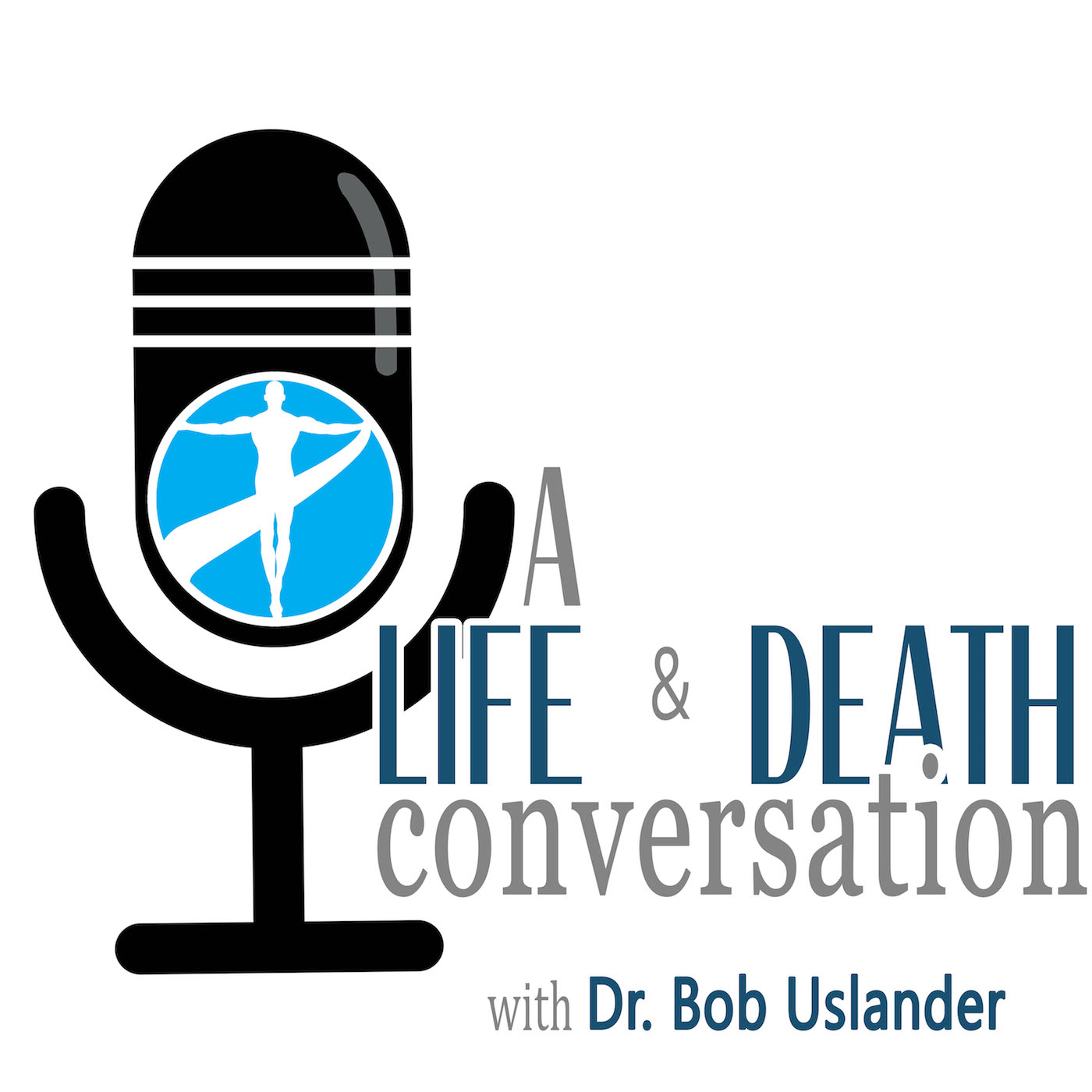We Croak: the App that Makes You Think About Dying, Hansa Bergwall Ep. 20
Description
Hansa Bergwall is the creator of a new app called "WeCroak". Out of his own personal meditation practice, he determined that death contemplation could be beneficial, not just for him, but for many people.
Note: A Life and Death Conversation is produced for the ear. The optimal experience will come from listening to it. We provide the transcript as a way to easily navigate to a particular section and for those who would like to follow along using the text. We strongly encourage you to listen to the audio which allows you to hear the full emotional impact of the show. A combination of speech recognition software and human transcribers generates transcripts which may contain errors. The corresponding audio should be checked before quoting in print. Contact You can download the app from your iPhone or Android device. You can also visit Hansa's website to learn more and download his app. WeCroak website TranscriptDr. Bob: So, Hansa, I'm totally curious about this. What prompted you to put an app out there that is going to notify people several times a day to think about death? What was the impetus for that? It's fascinating to me. How did that all come about?
Hansa Bergwall: So I'm a daily meditator and have been for a while now. And regular death contemplation is actually a really millennia old part of most serious meditation practices. So that's how I first got ... I learned about some of these ideas. And some of them are pretty intense, much more intense than what I'm doing, meditating in [inaudible 00:01:19 ] grounds, where bodies decompose as a way of laying them to rest, to know about your impermanent nature. Stuff that would be hard to do today living in New York City.
Hansa Bergwall: And then I came across the Bhutanese formulation of the practice that was, one, recommended for everyone and just really simple. It was just think about it five times a day that you're impermanent, that one day you will die. And you must do that in order to be a happy person. Immediately, it appealed to me as the kind of death contemplation that I wanted to add as a compliment to my meditation practice. So I just tried to do it myself. I thought, oh, this will be easy. I'll just think about it five times a day. And what I found was it was actually really hard. We have this pretty stubborn cognitive bias that we don't want to think about mortality all that often and it's hard to do, so I would get through my day and get to the end of the day and realize I hadn't done it even once.
Hansa Bergwall: So that was when the idea of something to remind me came about and the idea of WeCroak, the app, which sort of fell into my head as a fully formed idea that honestly I never thought would go anywhere 'cause I'm not a coder and had no way of making it a reality until Ian Thomas, my cofounder, happened to rent my extra room on AirBnB and we got to talking one night and I basically told him/pitched him my idea for WeCroak and he wanted it on his phone, too. He never thought it would go anywhere. And we made it together for the next couple of months, so it happened really quickly and really fortuitously, organically out of me trying to do something that I thought would help.
Dr. Bob: That's crazy. So if Ian hadn't rented your room, there's probably a pretty good chance that this never would've come to fruition, right? Were you going to go out and seek an app developer? Had you gotten to that point?
Hansa Bergwall: I had. I made a couple of inquiries, and it was going to cost me $10,000 or something like that if I wanted to develop this on my own. And I didn't have that kind of money sitting around, first of all. And, second of all, sounded like a lot of money to spend on something that I was quite skeptical would be broadly popular. So really we made this kind of as almost ... We were talking about it when we started as it was like an art project or something that we really wanted for ourselves, maybe to share with our friends, and we wanted it in the world. That was how we went about it.
Dr. Bob: Great. Without any huge expectations or goals that would potentially disappoint you if you didn't achieve them. That's usually the best way to start something.
Hansa Bergwall: Yeah, and what it allowed us to do is we stuck to our guns a little bit, the Bhutanese folk saying is five times a day. So we had a lot of people asking, like, oh, shouldn't you toggle it, so people only want one? We're like, but that's not the recommendation. We're going to do this tradition. We're going to do it right. So because we have our day jobs and other ways of making money, we could really make it be something that we thought would be a real mindfulness tool.
Dr. Bob: Great. So when did it actually become available? When did you complete the development process and put it up there for people to download?
Hansa Bergwall: So I first had it on my phone in August of 2017, and it started right away reminding me five times a day that I'm going to die with a quote that I had picked out. And it was really fun. It was this creation that we had done. There had never been anything like it before. For the first few months, it was just a few of our friends and us. I think there were 80 people on it tops as of a few months later, kind of working with it and enjoying it. And then I do communication and PR for a living, and so I had reached out to just a couple people about the idea, and the Atlantic magazine covered it in December, and that was when it really started to take off in the world, and it has to a huge degree since then, beyond our wildest expectations.
Dr. Bob: That's awesome. So how many downloads? I'm sure you're able to track that. How many people have downloaded it at this point?
Hansa Bergwall: Yeah, so as of a couple of weeks ago, we just crossed our 40,000th download.
Dr. Bob: Wow!
Hansa Bergwall: So that means that 40,000 people around the world have elected to pay 99 cents for an app to remind them that they're going to die five times a day and we estimate we're going to deliver our seven millionth reminder on May 7th. There's been a lot of these little reminders going out, interrupting people's days. They happen at randomized times, and that has been the journey since December. It touched a nerve somehow. [inaudible 00:06:53 ] not the only people that wanted these reminders, wanted to remember that life is precious and time is limited.
Dr. Bob: Have you gotten feedback from people? Have you had people who have shared any of what's come up for them or any interesting stories that have come out?
Hansa Bergwall: Yeah, of course. It's a strange thing because we know these reminders are going out, seven million of them, and mostly it's like we have no idea how these are affecting people. Except when you hear back from people every once in a while. A very common response is that it helps pull people back to what's important, gives them a little bit of perspective and they use that for everything from getting off addictive social media or technology, to getting out of anger or having better relationships just by not sweating the small stuff as much, to seize the day kind of moments of, hey, I'm just gonna go do this thing I wanted to do because otherwise I may not do it in my life and I want to.
Hansa Bergwall: So that's the most common response is people just using reminders to live a little bit better. And then there's this other category of people using it in much more serious positions and those, to be honest, moved me to tears a few times where I'll hear from people who are using it to help them in the grieving process for this woman said her son had passed away, and somehow it was helping. Another woman reached out to say she was having a hard time dealing with a mother dying of dementia and that it was helping her appreciate the time that they did have at the capability that they did, rather than just get into the poor me and my life kind of story.
Hansa Bergwall: Just last week I had a young man reach out of the blue to tell me he'd been using it and mourning the death of 20 friends to the opioid epidemic over the last year. It gets out there in the world, and you realize that this kind of information is pretty powerful in that it's useful whether you're just trying to live a little bit better or if you're really facing some of life's hardest moments.
Dr. Bob: Such a simple, simple concept to imagine having that kind of impact. Are you getting a sense that it's the reminders that are making more of an impact or the quotes that people are reading and that are touching them? What are your thoughts on that? Or what are you hearing?
Hansa Bergwall: I think it's the whole thing. First, we're doing the Bhutanese formulation of just think about it often. Five times a day. That alone is powerful enough if that was all it did. And then the quote part of it is we live in a society where there's a tremendous amount of noise, distraction, technology, addiction, screens, everywhere that keep us from being rea







